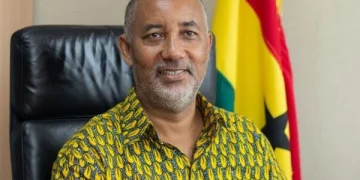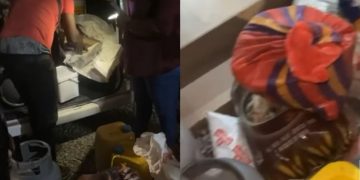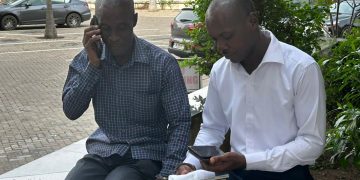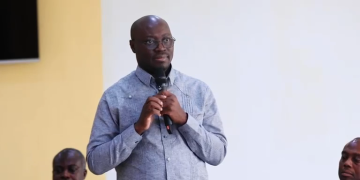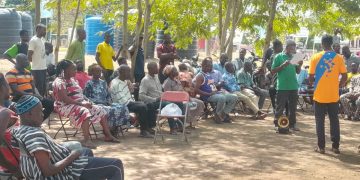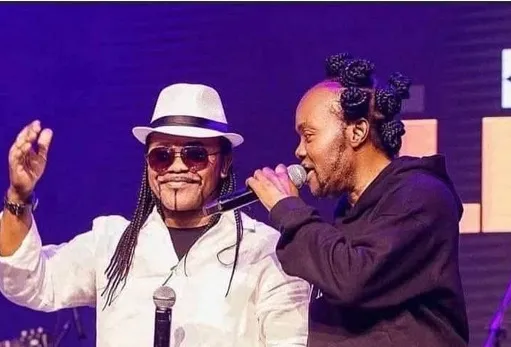Veteran Ghanaian highlife musician Nana Acheampong has expressed deep sorrow over the passing of his longtime musical brother and collaborator, Charles Kojo Fosu, popularly known as Daddy Lumba.
In a heartfelt Facebook post, Nana Acheampong poured out his emotions, describing the loss as a heavy blow and a deeply personal tragedy.
“It has been difficult for me to accept this sad news. Menua Kojo Fosu why this shock? Hmmm you have indeed done what the creator brought you on earth to do, you will forever inspire generations,” he wrote.
Nana Acheampong, who formed the iconic Lumba Brothers duo with Daddy Lumba in the early stages of their careers, shared that he and his family are in pain following the news.
“I and my family are in pain. To the family of my beloved brother, may God hold you tight in this moment. Rest in glory my brother and legend. Fly high my Lumba brother,” he added.
The tribute has stirred emotions among fans and industry players alike, many of whom remember the powerful musical partnership that helped shape modern highlife music in Ghana.
Daddy Lumba, whose influence on Ghanaian music is unmatched, leaves behind a rich legacy of timeless hits and an indelible mark on the country’s cultural landscape.
Nana Acheampong’s tribute is a reminder of the bond the two shared — a musical brotherhood that stood the test of time and changed the sound of a generation.
A Look Back at the Life and Legacy of Daddy Lumba
Born on September 29, 1964, in the town of Nsuta in Ghana’s Ashanti Region, Daddy Lumba, known in private life as Charles Kojo Fosu, began his musical journey in the early 1980s.
He adopted the stage name Lumba after composing a song titled Lumba Lumba, which he dedicated to the freedom fighters of South Africa, according to his official website.
Lumba later travelled to Germany, where he crossed paths with fellow highlife musician Nana Acheampong. The two formed the legendary Lumba Brothers, a duo that would go on to shape the future of highlife music.
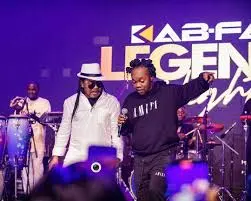

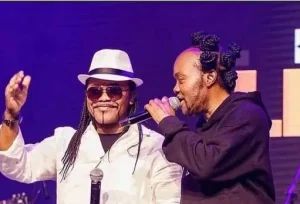 Their debut album, ‘Yɛɛyɛ Aka Akwantuo’ released in 1986, captured the struggles and aspirations of Ghanaian immigrants in Europe seeking a better life.
Their debut album, ‘Yɛɛyɛ Aka Akwantuo’ released in 1986, captured the struggles and aspirations of Ghanaian immigrants in Europe seeking a better life.
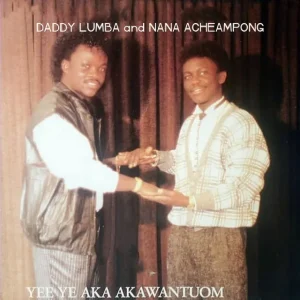
Following a fallout between the two, Daddy Lumba embarked on a solo career. In 1990, he released his first solo album, ‘Obi Ate Meso Bio’, marking the beginning of a prolific solo journey that solidified his place as one of Ghana’s most iconic musicians.
His family has asked for privacy as they mourn his loss, stating that they are “navigating this profound grief.” Funeral details are expected to be announced in the coming days.
https://web.facebook.com/photo/?fbid=1587802222467929&set=a.1214615869786568&__cft__[0]=AZWgKGAlm9owlwodZGPkE9-ysU0wBw8ysk9NmO6ukynH3-6fABartVzi78q461rF_m01Wqz-Qd1VvVy4BAW4dAIgbUL7Eob2M4imPUniipY_14hbaxF0uShd3gkdzmbSaNAtzNiFh5DPdyEWKc0P6uFS&__tn__=EH-R



